What is BCAA and its Benefits?
If you’re like me and the first thing that popped in your head after hearing those four letters was, “What is BCAA?”; well then, read on and you’ll find the answers you are looking for.
Today, we are going to talk about what BCAA is, what they actually do for the body, and its benefits.
What is BCAA?
Has your car ever run out of gas? Of course, you had to skedaddle to the nearest gas station and get it loaded. BCAAs are pretty much like gas. You’ll get the metaphor later.
BCAA or branched-chain amino acids are a special group.
Brace yourselves, because this is going to be a Science lecture.
This chain is made up of three amino acids: leucine, isoleucine, and valine. These three make up approximately 35% of essential amino acids in muscle proteins. That’s a pretty high amount, huh? It is important to know that there are two types of amino acids: non-essential and essential. BCAA belong to the essential group.
Now, hold up - what is the difference between essential and non-essential amino acids? Essential amino acids (histidine, isoleucine, leucine, lysine, methionine, phenylalanine, tryptophan, and valine) include all the amino acids that cannot be produced by the body; this includes BCAA. You only get them from protein foods. Non-essentials (alanine, arginine, aspartic acid, cysteine, cystine, glutamic acid, glutamine, glycine, hydroxyproline, proline, serine, and tyrosine), on the other hand, can be produced by the body derived from vitamins and other amino acids. Don’t be fooled by the term “non-essential”, though, as all amino acids are needed for proper metabolism and even during illness or trauma
Clear? Now, let’s go back.
Amino acids, specifically 20 different amino acids make up protein. If you avoid protein, you can’t grow muscle. If you can’t grow muscle, it’s gonna be tougher (than it already is) to burn fat. Some of you may not know this, but building muscle is actually the best way to put the body into fat burning mode.
Now, do you get the metaphor? Your car cannot produce gas, in the same way that our bodies cannot produce BCAAs. Therefore, we can rely on the best BCAA supplement from Nutra Botanics. Woah, was it way too early to plug?
What does BCAA Do to the B-O-D-Y?
Now, to answer the question: What do BCAAs do? I have a few answers for you.
BCAAs Do: Protein Synthesis
So, BCAAs primary role can be summed up in two words: protein synthesis. BCAAs are well-known to crank up protein synthesis. Protein = muscle. Protein synthesis can be illustrated as proteins made up of amino acids strung together like a pearl necklace.
As we’ve established earlier, you cannot transform your body without building some muscle - and BCAAs advance muscle growth in different ways I will no longer delve into to avoid lulling you into slumber.
BCAAs Produce: Energy
We all need energy to function; more so, when we do intense training or workout sessions. The more intense and the longer the workout, the more BCAAs are used for fuel. Hence, we need an immediate energy source. Valine, a part of BCAAs, plays a specific role in providing energy for various physical activities. This is how BCAAs produce energy. See, while working out, tryptophan takes up most of “brain space”.. Tryptophan is then converted to serotonin. When there is a high level of serotonin during exercise, it signals the brain that the body is getting tired and will eventually cause reduction in muscle strength and endurance. But Valine counteracts the tryptophan for entry and usually wins. This results into lesser tryptophan getting in and converted to serotonin, which allow your muscles to contract more for a longer period of time.
So, What Are the Benefits of BCAAs?
BCAAs Help Reduce Tiredness
As I’ve mentioned earlier BCAAs, specifically Valine, counteract tryptophan which is converted into serotonin. Because of this, BCAA supplements can help reduce stress and maximize each gym session. I mean, you dragged yourself out of bed and forced yourself to wake up just to get to the gym, you might as well make the most out of it and be one step closer to getting that dream body of yours
BCAAs Help Reduce Muscle (Soreness)
BCAAS are an excellent anti-catabolic because it helps avoid protein breakdown and muscle loss, which is very important to those who are on aggressive fat-loss eating plans. Because of the low caloric intake, BCAAs are highly recommended as there is a greater menace of muscle loss due to a reduction in protein synthesis rate.
Now, raise your hands if you decided to skip a workout and stay in bed, covered in pain relieving patches! Woop, woop! According to Isabel Smith, R.D., “BCAAs can help promote muscle growth and repair and reduce muscle soreness after exercise.” But it comes with a warning: while they may make you feel less tired after a workout, it does not, in any way, improve athletic performance.
BCAAs Help Suppress Feelings of Hunger
Smith also said that in addition to making your workouts more efficient, some studies have recently shown that BCAAs, specifically leucine, may help you feel more full by improving sensitivity to the hunger hormone, leptin. More research shows that leucine also helps promote fat burning and balances blood sugar levels as well.
So, there you have it, folks! The 411 on BCAAs! If there’s something I gleaned from writing this post, it’s that BCAAs are not just for those who are looking to bulk up - it’s also for those who wish to lean up. With all the BCAAs benefits, it’s truly a win-win situation.
What are you waiting for? It’s time to show ‘em the guns!

